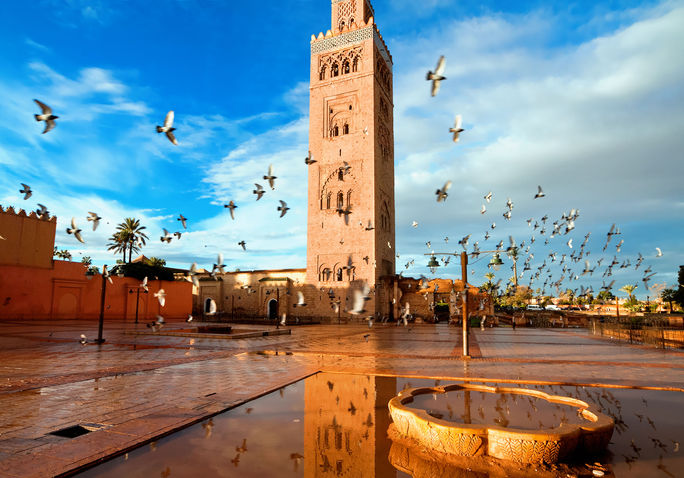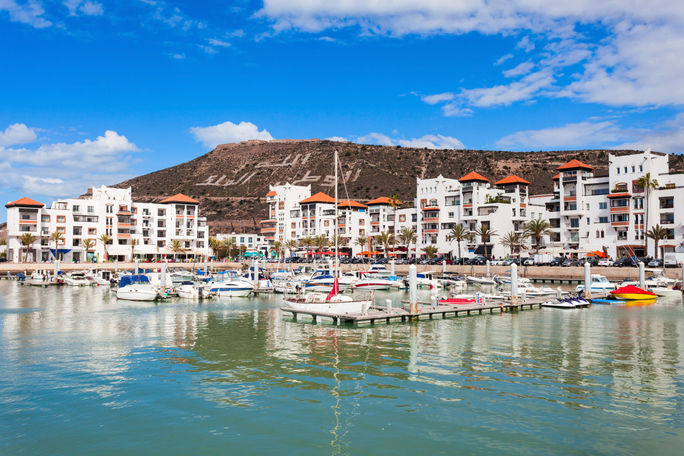Last week, Morocco suffered its deadliest earthquake in over 60 years, and the strongest to hit the nation’s center in more than a century. More than 2,600 people are known to have been killed and 2,500 more were injured by the unforeseen natural disaster, according to CNN. The death toll is expected to rise as rescuers continue searching through the rubble for survivors and trying to reach remote communities.
Travelers with upcoming trips planned to the popular North African destination are no doubt wondering what they should do at this point. If you’re among them, your first inclination might be to cancel or postpone, but those on the ground in Morocco are saying that isn’t necessarily the best thing for the country.
Extent of the Earthquake’s Damage
The epicenter of Friday night’s 6.8-magnitude quake was located in the High Atlas mountain range in the province of Al Haouz. It was where it was also felt strongly in the nearby commercial and tourism hub of Marrakech, where intense seismic activity damaged the city’s historic medina (old town). A mosque in its iconic Jemaa el-Fna square is now “barely recognizable”, according to CNN’s on-the-scene reporter, its ornate tower “almost entirely collapsed”.

Koutoubia mosque, Marrakech, Morocco (mmeee / iStock / Getty Images Plus)
Popular seaside vacation spots like Essaouira and Agadir also felt the quake strongly, but, while it was still felt in northern cities like Casablanca and Fez, they sustained no damage. In Marrakech, all historical monuments remain closed until further notice, including such notable sites as the Bahia Palace, Saadian Tombs and El Badi Palace.
While some of the region has undeniably suffered devastating losses and emergency aid is still being delivered to High Atlas communities, much of the country is reportedly continuing to operate without interruption.
Public transportation has already resumed and is running normally, airports are open and flights are operating as usual. In Marrakech, plenty of private institutions, hotels, galleries and museums have already reopened, as have many souks (marketplace stalls) whose owners now worry about the lack of visitors.
In the aftermath of the quake itself, the country could suffer further damage if tourists do not continue to come. Travelers are, of course, advised to check with their tour operator about whether it plans to proceed with their scheduled departure, as each company is handling the situation differently.

PHOTO: Jemaa el-Fnaa Square in Marrakech, Morocco. (photo via Camptures/iStock/Getty Images Plus)
Should Tourists Still Visit Morocco?
Area residents, tour operators and on-the-ground reporters all echo the same advice: For the moment, steer clear of destinations in the High Atlas mountains, to leave the way clear for first responders and emergency aid to reach the more remote villages that were truly devastated by the quake.
In the High Atlas’ tourism hubs, “All the houses are gone, people are sleeping in tents,” CNN’s Ivana Kottosová reported. “Some of the roads have not been entirely cleared, and there’s a lot of traffic delivering humanitarian aid.” Tourists may want to reroute any planned activities in the Marrakech medina. But, most other places are still welcoming visitors exactly the same as before.
Bilal El Hammoumy, co-founder of tour operator Inclusive Morocco, said his company is advising guests to reroute to the nation’s north or reschedule their trips for a later date.“I would advise people to wait a while to visit the High Atlas Mountains, but I think Marrakech can still be visited immediately,” he said.
In Marrakech, “Any business that is able will be back open this week, most already are – most hotels are open, the restaurants are open and most of the medina’s streets are accessible, having been swiftly cleared of debris,” Vanessa Branson, co-owner of luxury hotel El Fenn, told CNN. “The city is busy with the cleanup operation in progress, and though the buildings and people will bear the scars for a long time to come, the city is shaken, not stirred. The mountains will obviously take a little longer to recover.”

Boats at the Marina harbour in Agadir. Agadir is a major city in Morocco located on the shore of the Atlantic Ocean, near the Atlas Mountains. (photo via saiko3p/iStock/Getty Images Plus)
As mentioned, Morocco’s northern provinces emerged from the event unscathed and, in such popular places as Rabat, Merzouga, Skoura and the Sahara Desert, nothing has changed. Even tourist destinations in the south of the country, like Ait Benhaddou and Dades Valley, are still going about business as usual.
Meryem Ameziane, who works as a tour guide in Fez, explained,“None of the northern part was affected by the earthquake, all the roads between the cities are operating as usual. She said people shouldn’t feel guilty or awkward about following through with their travel plans. “We are at the beginning of high season for tourism and we are all praying that business will continue as usual.” She added, “We really need the support of travelers to visit Morocco and support the economy, because we have a lot to go through to help the people affected by the earthquake and rebuild the destroyed villages.”
“If tourists stop traveling to Morocco it will have a huge impact on the livelihoods of the people and businesses that rely on them – visitors bring with them hope of recovery,” said Branson. “I urge guests not only to stick to their plans to visit Morocco but to make plans to visit if they’ve not already. I’d just recommend using a guide to get around here.”
“The earthquake struck during one of the busiest months for tourism, and many of our tour leaders and partners are concerned that it will deter people from visiting,” said Zina Bencheikh, Intrepid Travel’s Managing Director EMEA, based in Morocco. “Our teams and suppliers say the best thing people can do to support local communities is to continue to travel to Morocco while avoiding the most impacted areas. The country will need tourism more than ever as it rebuilds.”
For the latest travel news, updates and deals, be sure to subscribe to the daily TravelPulse newsletter here.
Topics From This Article to Explore